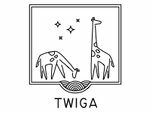Drone training at KNUST in Kumasi

The recipe for a successful drone training week: 11 motivated participants. 1 Flying Sensor. 1 challenging task to perform. Perfect facilities (Thank you Mr Isaac Duodu from Kumasi Business Incubator!). The right assistance (Mr Joel Budu from Farmerline!). That`s what it takes to perform a week`s training and finish it successfully. Coming from different professional backgrounds […]
Of Science and Sensors: TWIGA at AGU

Of Science and Sensors: TWIGA at AGU The Fall Meeting of the American Geophysical Union (AGU) is each year one of the highlights of many environmental scientists. The conference is probably the biggest gathering of earth and environmental sciences in the world, with around 25,000 attendees. This year the event landed in the cavernous convention […]
From “nice idea” to “actionable information

An important output of the TWIGA project will be new geo-services (twenty!) based on the application of innovative sensors. In order to speed up the development of these services, a Hackathon was organized from 19 through 23 November 2018 at the Kwame Nkrumah University of Science and Technology in Kumasi Ghana. The objective was to […]
How to obtain actionable requirements from users?

It is well admitted that data alone does not provide solutions. The data needs to be processed and converted into practical applications to be useful and generate profit. With the same approach, we may say that general market trends or global challenges do not provide user requirements. These challenges need to be downscaled and converted […]
Open Data Cube and Deep Learning to Exploit Earth Observation Data Precipitation

In this video, Mónica Estébanez Camarena, Ph.D. candidate at TU Delft, talks about the Schools and Satellites (SaS) project (https://tahmo.org/schoolandsatellites/), in which she has been working since 2019. The project was born as a collaboration between TU Delft, TAHMO, PULSAQUA, Smartphones4Water, and the Ghana Meteorological Agency (GMet). SaS is one of the pilot projects of […]
Water Level Monitoring Reservoir

Every now and then, water reservoirs fill up and lots of water are spilled, surprising the downstream inhabitants with very sudden and unexpected floods. This is a relatively common phenomenon. Therefore, in the TWIGA project, we decided to start designing a service that determines how full the reservoirs are based on satellite imagery. We estimate […]
DIGITALISATION, INFORMED DECISION-MAKING, EMPOWERMENT, INCLUSIVENESS & THE RIGHTS-BASED APPROACH

An important advantage of digitalization and remote sensing, in particular, is that it facilitates informed decision-making, can serve as an instrument for empowerment (increased transparency), and supports inclusiveness. But how is this put into practice and take existing power relations into account? Especially in the context of tackling poverty, many factors play a role and […]
Monitoring country-wide atmospheric water vapor in Uganda

The first TWIGA cost-effective GNSS stations were successfully deployed in Uganda in November 2019 by GReD, PoliMi, and TU Delft. Since then, they have collected raw GNSS data to monitor the amount of atmospheric water vapor, for meteorological applications. The stations were deployed nearby Kampala, forming a dense mesh capable of detecting spatial variations of […]
Connecting TWIGA to the GEOSS initiative

Climate and weather, with a high degree of spatial and temporal variability, can adversely affect crop yields, cattle production, and the availability of freshwater. The production of food is at the forefront of climate change and population growth impacts as the ecosystems on which it relies are increasingly degraded and the availability of suitable land […]

